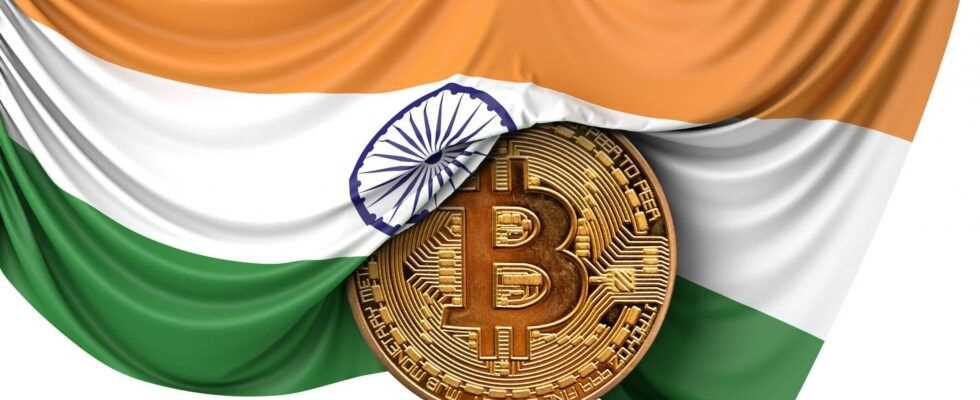A new Bitcoin card and millions of investments in Indian blockchain projects. A lot is happening in India’s crypto scene.
It wasn’t until the beginning of the year that the news that India might ban all cryptocurrencies caused Bitcoin and the entire crypto market to stumble. But now positive impulses from the second most populous country in the world. As the Indian start-up GoSats recently announced, the company is launching a crypto debit card on the Indian market. This has, among other things, generous cashback functions. In addition, one surprised investors with the cooperation with the “National Payments Corporation of India” (NPCI) – a sub-organization of the Indian central bank “Reserve Bank of India” (RBI). This was previously more likely to stand out for its crypto-skeptical stance.
The GoSats company was founded on August 5th, 2020 by Mohammed Roshan and Roshni Aslam. On August 15, 2021 – almost a year later – the company launched two crypto cashback cards. One is a premium gold card with 100 percent cashback and the other offers users at least 25 percent cashback in Bitcoin on their purchases. The basis for the Bitcoin cards is the RuPay technology on which GoSats builds the Cahsback function. The NPCI founded RuPay years earlier as the Indian counterpart to VISA and Mastercard. The new card could ensure that crypto gains more popularity and acceptance in India.
India’s bitcoin scene is on the rise
India is the second most populous country in the world and investors seem to see enormous potential in the country. Sure, because the nearly 1.4 billion Indians together form a huge market. Investors from the United States seem to see it that way too. Because more and more American donors are investing millions in Indian Kypto start-ups. At the beginning of the year, for example, Mark Cuban invested in the blockchain company Polygon, which was founded in Mumbai. The German-American start-up investor Peter Thiel, with his venture capital company “Valar Ventures”, also invested 25 million US dollars in the start-up Vauld. Vauld’s headquarters are in Singapore, but the majority of the team is based in India.
And only this month announced CoinDCX, founded in 2018, stated that it was India’s first crypto “unicorn”. The company raised over US $ 90 million from well-known investors, making it a company valuation of over US $ 1 billion. For example, Facebook co-founder Eduardo Saverin was among the CoinDCX investors.
The government of India is still considering how to proceed with crypto. At the moment, however, it looks like companies in India are taking more and more measures to make the topic of crypto, bitcoin and blockchain more accessible to billions of Indians. For example the company Unocoin. This was founded in 2013, enables its users to trade with Bitcoin and published on her blog on July 24th, 2021 that she offers her customers the opportunity to buy coupons from more than 90 brands with Bitcoin. In addition to brands such as Dominos Pizza, vouchers from companies in the tourism, jewelry or food sectors are also available.
RBI: “Maybe the time for CBDC has come”
There is no doubt that the increase in crypto service providers should have a positive impact on adoption. The fact that more Indians are using cryptocurrencies could also put pressure on the central bank. Perhaps the opinion of the former crypto-skeptical, almost crypto-hostile, currency guardian has softened. One thing is certain: an Indian CBDC should also be in the interests of the RBI. It was only at the end of July that there were positive comments about digital central bank money:
The introduction of CBDC can bring significant benefits, such as lower cash dependency, higher cash creation profit due to lower transaction costs, and lower settlement risk. The introduction of central bank digital money would potentially result in a more robust, efficient, trustworthy, regulated and legal tender payment option. Undoubtedly, there are risks involved and these must be carefully weighed against the potential benefits. (…) It is said that every idea has to wait for its time to come. Maybe the time has come for CBDC.
So the Indian Central Bank in theirs Blog on July 22, 2021.
Should the Reserve Bank of India issue a CBDC, it would place itself in line with several other central banks. In addition to the European Central Bank, the central banks of smaller countries, such as Ghana, are considering whether digital central bank money could bring their countries an advantage.
